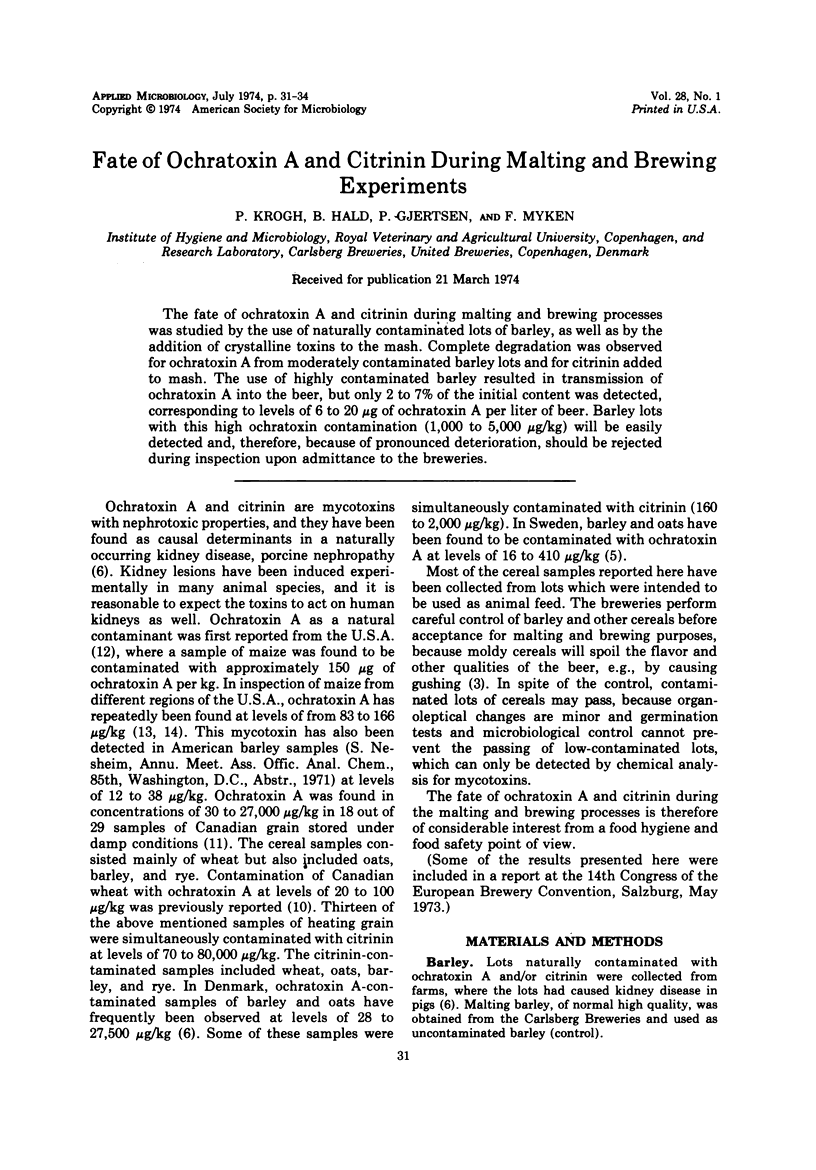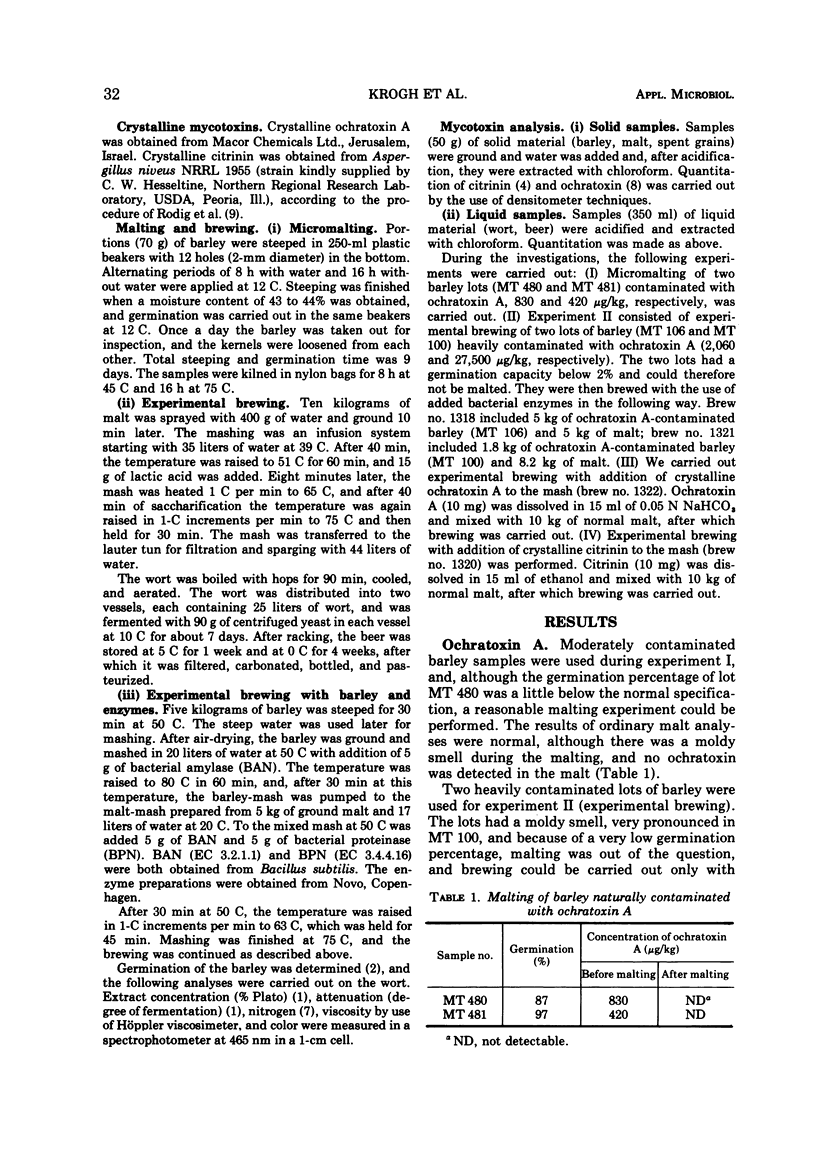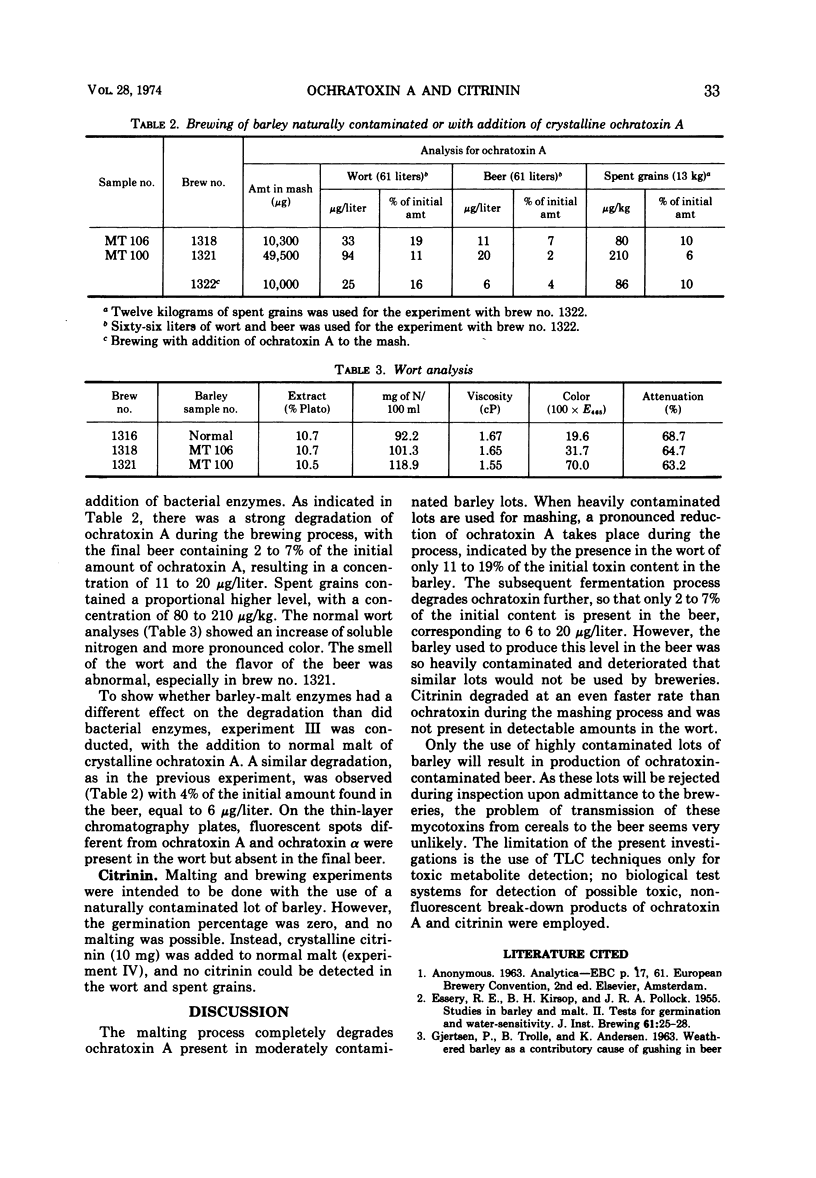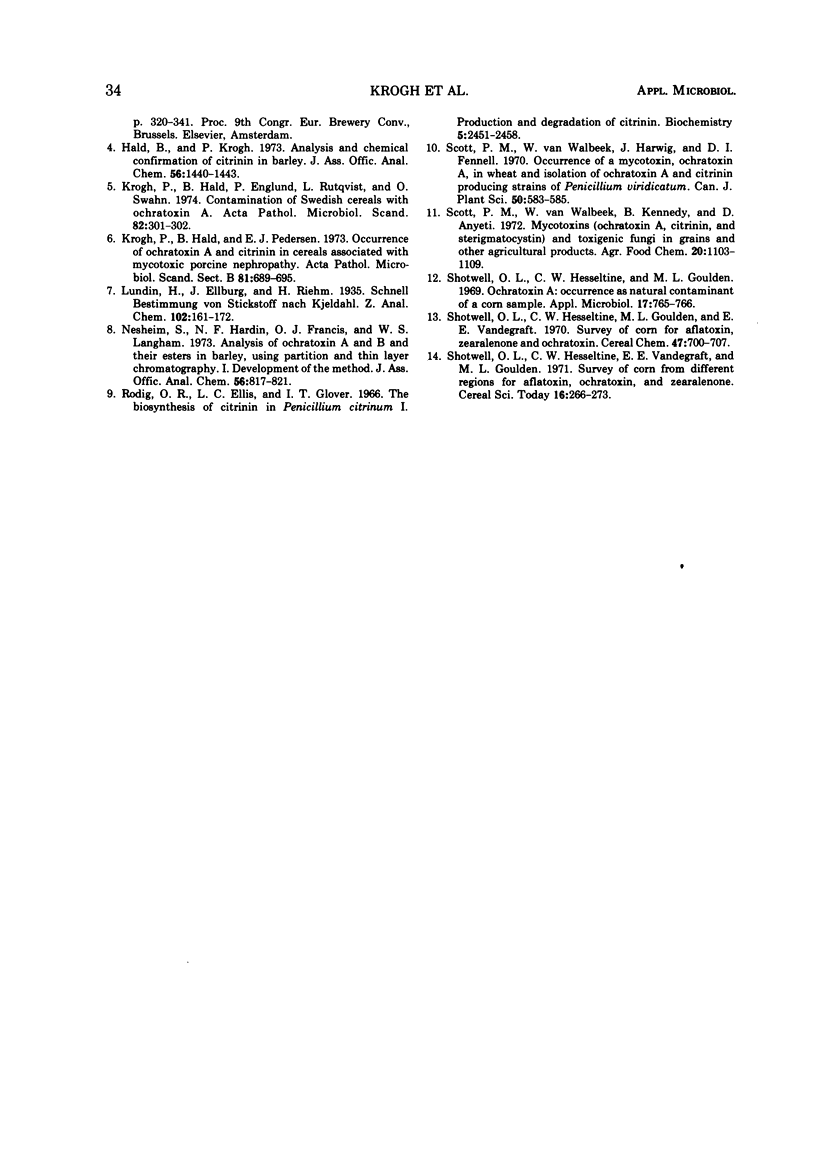Abstract
The fate of ochratoxin A and citrinin during malting and brewing processes was studied by the use of naturally contaminated lots of barley, as well as by the addition of crystalline toxins to the mash. Complete degradation was observed for ochratoxin A from moderately contaminated barley lots and for citrinin added to mash. The use of highly contaminated barley resulted in transmission of ochratoxin A into the beer, but only 2 to 7% of the initial content was detected, corresponding to levels of 6 to 20 μg of ochratoxin A per liter of beer. Barley lots with this high ochratoxin contamination (1,000 to 5,000 μg/kg) will be easily detected and, therefore, because of pronounced deterioration, should be rejected during inspection upon admittance to the breweries.
Full text
PDF



Selected References
These references are in PubMed. This may not be the complete list of references from this article.
- Krogh P., Hald B., Englund P., Rutqvist L., Swahn O. Contamination of Swedish cereals with ochratoxin A. Acta Pathol Microbiol Scand B Microbiol Immunol. 1974 Apr;82(2):301–302. doi: 10.1111/j.1699-0463.1974.tb02329.x. [DOI] [PubMed] [Google Scholar]
- Krogh P., Hald B., Pedersen E. J. Occurrence of ochratoxin A and citrinin in cereals associated with mycotoxic porcine nephropathy. Acta Pathol Microbiol Scand B Microbiol Immunol. 1973 Dec;81(6):689–695. doi: 10.1111/j.1699-0463.1973.tb02261.x. [DOI] [PubMed] [Google Scholar]
- Rodig O. R., Ellis L. C., Glover I. T. The biosynthesis of citrinin in Penicillium citrinum. I. Production and degradation of citrinin. Biochemistry. 1966 Jul;5(7):2451–2458. doi: 10.1021/bi00871a040. [DOI] [PubMed] [Google Scholar]
- Scott P. M., Van Walbeek W., Kennedy B., Anyeti D. Mycotoxins (ochratoxin A, citrinin, and sterigmatocystin) and toxigenic fungi in grains and other agricultural products. J Agric Food Chem. 1972 Nov-Dec;20(6):1103–1109. doi: 10.1021/jf60184a010. [DOI] [PubMed] [Google Scholar]
- Shotwell O. L., Hesseltine C. W., Goulden M. L. Ochratoxin A: occurrence as natural contaminant of a corn sample. Appl Microbiol. 1969 May;17(5):765–766. doi: 10.1128/am.17.5.765-766.1969. [DOI] [PMC free article] [PubMed] [Google Scholar]



